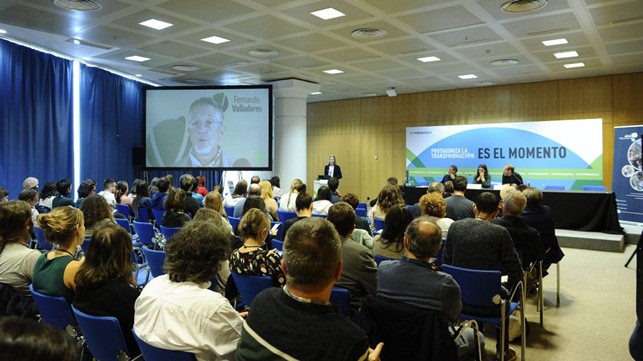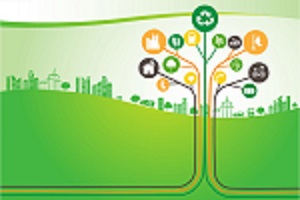Scientists estimate that by 2050, cities will become home to 5 billion people worldwide. Urbanization is rapidly changing the demographics of both growing and developing economies, but cities are not just about faster access to services and convenient infrastructure. Air, light, and sound pollution is an integral part of urban areas, together with waste. Higher living standards and increasing consumption lead to growing levels of waste generated in cities. According to the World Bank, cities accumulate around 2 billion tonnes of waste per year, and this figure is expected to rise to 3.4 billion tonnes by 2050. To tackle the issues of highly dense population problems, most innovative cities are shifting to a circular economy.
An increasing number of European and global cities take the development of a circular economy very seriously. For example, Paris is currently implementing a circular economy development plan. It includes 15 initiatives covering the promotion of local products, recycling and renewal services, the development of electronic services, the transformation of the construction sector, and the implementation of sustainable public contracts. With this development plan, Paris seeks to address the sensitive issue of growing food and construction waste, so the highest priority is given to projects that strengthen short, local value chains and foster collaboration between local businesses and communities.
The city of Glasgow is also very active in developing local circular economy projects. One of the examples is the initiative Circular Glasgow that was started by the Glasgow Chamber of Commerce. Circular Glasgow acts as a cooperation network and a knowledge center for the circular economy. Thanks to the Chamber of Commerce’s drive to move towards a more sustainable and innovative economic model, Glasgow has seen a significant increase in the number of local companies implementing circular economy projects over the past 5 years, making a noticeable contribution to the Zero Waste Scotland National Program.
Swedish city Eskilstuna has the world's first shopping center which sells only refurbished items. Refurbishment businesses of textile, furniture, electronics, and other products have been brought under one roof by a municipal company responsible for energy, the environment, and waste management. The goods sold in ReTuna come from the local citizens, and later they are taken care of by the staff of the supermarket. The shopping center has created more than 50 jobs, and the place strengthens the community and builds attitudes towards responsible consumption.
Although the development of a circular economy is inconceivable without the involvement of different stakeholders, city municipalities are still one of the key players in initiating significant and long-lasting change in urban areas. Municipalities should promote circular economy by building partnerships and facilitating dialogue, but most importantly, they need to set an example to follow. A way to set such an example is to promote the principles of the circular economy by implementing green and circular procurement.
Municipalities spend a significant amount of money on public goods and services that could become more sustainable. For example, the procurement of new furniture for schools could be replaced by procurement to renew or refurbish already existing equipment. The procurement of public transport that is electric or fuelled by locally based biofuels is also an example of a more circular solution. Smart and sustainable construction and repair works could lead to a major change in cities, as they compose a large part of the public procurement budget in municipalities. High importance should also be put on innovative ways to collect and treat waste, together with awareness-raising activities among citizens. A good way to start is to use green public procurement criteria that are set by the European Commission.
Back in 2019, the municipality of the Lithuanian capital Vilnius has spent 13,8% of its budget on goods, services, and works that satisfied the environmental criteria of green public procurement. At first sight, this share looks quite moderate, but it was the largest one among other procuring organizations in the country that year. Representatives of Vilnius municipality say that major progress was achieved in procuring office equipment and paper, together with an ecologic food supply for kindergartens. Moreover, the municipality is starting to implement more green public procurement in the area of building design services, city’s sustainable urban mobility plan should contribute to more circular transportation procurement. Vilnius is a well-known European capital for its green areas and high-quality life, but there is still a long way to move forward and create even more sustainable homes for urban citizens. Fortunately, circular procurement can be an answer.














